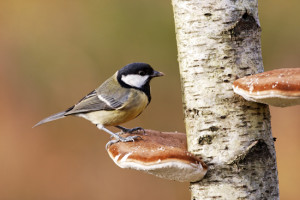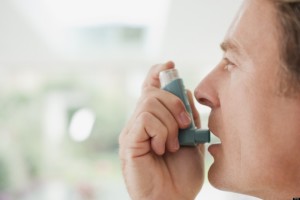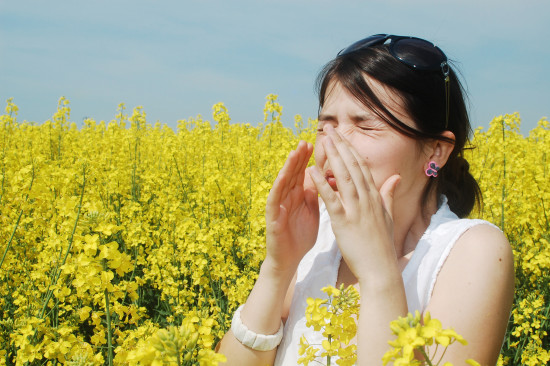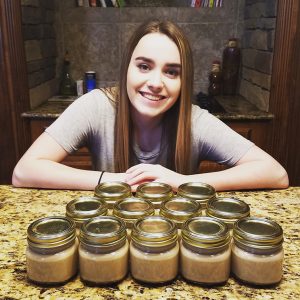Benefits of Honey – Does Eating Local Honey For Allergies Work?
All of my life, I have heard family and friends tell me that if I eat local honey for allergies, it will improve them tremendously.
Look, I’ll be honest, while I LOVE working with my bees and enjoy knowing that I’m helping farmers pollinate their crops of fruits and vegetables (which I love to eat), I don’t LOVE the taste of honey. I like it, but I don’t love it. So, it wasn’t until the last few years when my allergies got worse that I started seriously looking for local honey.
Where I live, it is VERY HARD to find. There are a lot of local honey bottlers that rebottle large buckets of honey from the Dakotas and Canada, but Oklahoma is not a huge honey-producing state for commercial beekeepers, so if you’re looking for local honey here, you almost HAVE to buy it from a local beekeeper or beekeeping supply store. It is very doubtful that honey you buy in the grocery store in Oklahoma is made locally, even if it is an all-natural store.
Why Is Local Honey For Allergies Better than Honey From Outside Your Geographical Area?
Whether it is just an old wive’s tale that has been passed down for so long that it is now truth in most people’s mind or if it actually has some merit, it has long been believed that honey produced within a 25 mile radius of where you live will most likely contain what you are allergic to the most.
The theory is that by ingesting small doses of these local pollens, your body can build up a natural resistance to the allergy symptoms they can create in your immune system.
It is most helpful to be taking honey year-round so that during the off-season of allergies, your body can be building up a resistance to the affects of the pollens to which you are allergic.
I’m not big on taking something for medical benefits if I haven’t done some research on it, so I decided to do my own research on studies that have been conducted to either prove or disprove the health benefits of honey for allergy sufferers.
The results? Completely inconclusive.
The general idea that has been passed down for generations is that because the bees get covered in pollen spores as they collect them from trees and flowers, those spores get transferred to the honey.
If the honey is not heated and is left raw and unfiltered, the belief is that by ingesting about a teaspoon to tablespoon of honey a day, you will build up your resistance to those allergens if you’re allergic to them.
University of Connecticut Honey Benefits Study
Back in 2002, a study was conducted by the University of Connecticut Health Center’s Lowell P. Weicker General Clinical Research Center to study the effects of eating honey local honey for allergies.
Each group was divided into three groups:
Group 1 received locally collected, unpasteurized, unfiltered honey;
Group 2 received nationally collected, pasteurized, filtered honey (this is what you buy off the grocery store and has had all of its pollen removed); and,
Group 3 received a corn syrup placebo (believe it or not, restaurants like KFC don’t even serve real honey – they serve this junk – and it tastes surprisingly similar to honey).
Each test subject was instructed to take one tablespoonful of honey or placebo per day, not knowing which one they received.
The conclusion of the test subjects was that nobody saw any reduction in their allergy symptoms after months of participating in the study.
Helsinki University Central Hospital and South Karelia Allergy and Environment Institute Study of Honey Benefits
In 2011, a joint study was published by researchers from South Karelia Allergy and Environment Institute in Lappeenranta, and the Department of Allergy from Helsinki University Central Hospital in Helsinki, Finland. These researchers set out to determine if eating local honey for allergies worked.
 This study was very small and only studied 44 patients with birch pollen allergies. However, the results were much different than the earlier study at the University of Connecticut.
This study was very small and only studied 44 patients with birch pollen allergies. However, the results were much different than the earlier study at the University of Connecticut.
Instead of focusing on patients in the middle of allergy season trying to combat their allergy symptoms, this study was conducted pre-allergy season to see if honey could be used as a preventative if eaten regularly from November to March prior to the birch pollen season.
These 44 patients ate either birch pollen honey or regular honey daily from November to March, with 17 of these patients receiving a placebo and taking their usual allergy medicine.
The conclusion of this study was that when birch pollen season commenced, compared to the control group, patients taking the birch pollen honey had the following results:
60% fewer allergy symptoms;
Twice as many days without symptoms;
70% fewer days with severe allergy symptoms; and
50% decrease in the need for antihistamines.
Researchers concluded that the patients who had eaten birch pollen honey prior to the birch pollen allergy season commencing had significantly better control of their symptoms that patients who had been given a placebo and only taken their traditional allergy medicine. Patients who had eaten regular honey had marginally better control of their allergies than those who had only taken their regular allergy medicine.
Honey for Hay Fever
In 1990, a report was published called, “Honey and Hay Fever: A Report on the Treatment of Hay Fever with Honey” about a very small clinical trial that involved only 21 patients suffering from hay fever.
Patients were instructed to eat 10-20 grams of honey each day from Autumn of 1987 to Spring of 1988. In addition to eating honey, some of the patients also ate honey comb.
The results of this small study were strikingly different and were divided by how long the patients had suffered from allergy symptoms.
36% of the patients said they had some sort of relief from their allergies by eating honey;
16 allergy sufferers who were older and had battled their allergies the longest (approximately 25 years) reported the greatest benefits; and,
Others who reported no benefit had suffered from allergies for only 17 years. It is unknown if this factor is relevant.
Asthma Relief By Eating Honey
 Many asthma sufferers, including myself have allergy induced asthma, meaning when it’s not allergy season, my asthma doesn’t bother me much at all. But, when my allergies go haywire, my asthma kicks into full gear.
Many asthma sufferers, including myself have allergy induced asthma, meaning when it’s not allergy season, my asthma doesn’t bother me much at all. But, when my allergies go haywire, my asthma kicks into full gear.
If the results of 2 of the 3 studies above and the verbal reports of others who have been eating honey to control their allergies successfully for years are to be believed, then it only stands to reason that by controlling the allergies, you control the asthma of people who have allergy-induced asthma.
This is the #1 reason I started beekeeping. Local honey is SO hard to find where I live if it’s not right after the honey harvest in early July. Now that I’ve been a beekeeper for awhile and able to eat honey my bees have made, my allergies and asthma are much better, as long as I don’t mess around and forget to eat Queen Bri’s Honey on a daily basis.
Two Important Warnings About Eating Honey
Personally, I believe wholeheartedly that eating local honey for allergies and asthma works. I’ve seen a dramatic improvement in my own symptoms since I’ve started eating our local honey.
However, there are some people for whom honey can be dangerous, or in some cases, can cause severe allergic reactions, including anaphylactic shock.
Who shouldn’t eat honey?
If you’ve ever had an adverse reaction to honey in the past, DON’T eat it again. Allergic reactions get worse over time, not better. Obviously eating local honey for allergies is of no benefit if you’re going to have a severe allergic reaction to the honey itself.
Diabetics with an insulin intolerance – approximately 70-80% of honey is fructose, which can adversely affect pre-existing insulin resistance problems diabetics have;
People with high cholesterol;
People with high blood pressure; and,
Very overweight individuals – since 70-80% of honey is fructose, it will go straight to your hips if you’re not active!
When used in moderation though, eating raw local honey for allergies is also good for your health.










